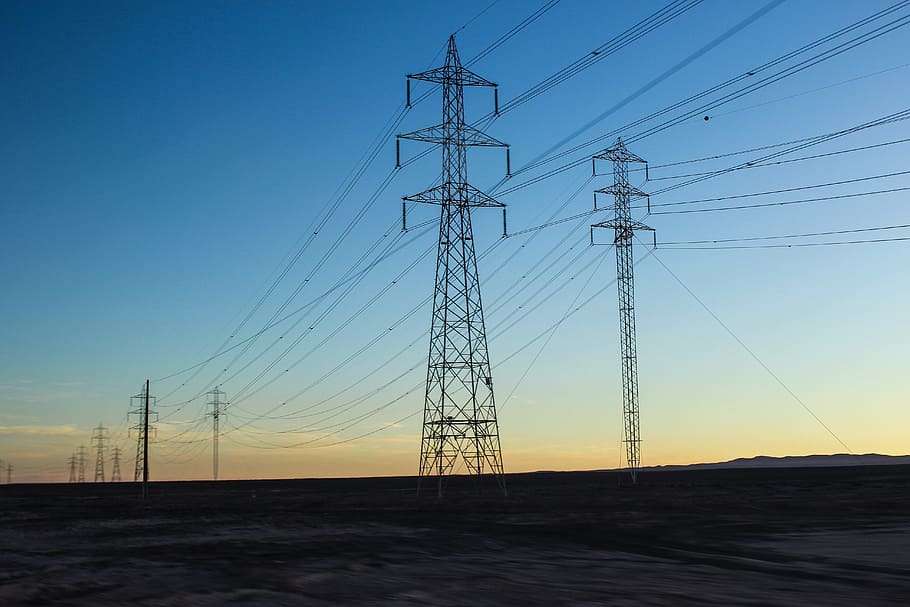The issue of pension funds is back on the agenda as Rishi Sunak has faced increasing pressure to end the triple-lock on state pensions, which have legal guarantees to rise in line with the highest of average earnings growth, inflation or 2.5%. The proposals muted would see a double lock imposed, to ensure that the Government isn’t stung by a one-off increase in earnings next year. Critics will accuse the Government of breaking manifesto pledges but pensioners have become the richest group in society when they were once the poorest.
However, the more pressing issue for pensions is their unsustainability, both financially and environmentally, and the large economic repercussions should they fall.
A shift in the structure of pensions that began in the 1980s has meant they have evolved into a huge part of the financial system. Pension funds now have nearly $3 Trillion worth of assets in the U.K alone. The environmental impact they have, positively unknowingly to their savers, is that 9 out of the 10 largest pension funds have money being funnelled into fossil fuel companies.
Investors have traditionally funded government debt, be that domestic or that offered in emerging markets, as the bonds issued are deemed as safe bets because they’re backed by the state. They’re assumed to offer steady returns an implicit assumption that is coming under threat.
The reason being is that as central banks cut interest rates to stimulate the economy, stock markets rose in value, despite the underlying structural issues that face many Western states. However, as interest rates are cut, returns on investment on government bonds decrease, meaning investors have to seek out riskier returns. In both instances, these investments fund your (or our) pensions. Yet, government bonds face a more complex issue.
These threats now come in three forms. First, with ageing, as the tax-base is predicted to decline, and the strain on public finances moving in the other direction as the demand on social security increases. Second, with automation, which has led to a rise, not in unemployment as was often predicted but in low-value work. Third, and the focus of this article, the environmental crisis. For Government debt to remain a ‘safe-bet’ and prevent it from being labelled as junk, it relies on states’ ability to deal with each of the problems above.
All of this is juxtaposed against the idea that workers in Britain especially, believe they have a right to be provided with a decent standard of living after they retire. This is now under threat and there now exists a serious risk that workers will outlive their savings. Whilst companies, who once took pension holidays upon the recommendations of investors, now look to have insufficient funds to meet their obligations.
How then, will the British government, meet its legally binding commitments to the Paris climate accord, whilst divesting from carbon activities? The scale of the task ahead of us regarding our climate commitments is unprecedented. Meeting our net-zero targets by 2050 and limiting warming by 1.5 degrees requires us to cut greenhouse gas emissions by a staggering 7.6 per cent each year. For context, given that the majority of the world’s states were in lockdown for at least 2 to 3 months this year, according to the Economist, emissions are supposed to decline just 8% this year.
To put things into perspective, to meet our Paris climate targets and keep warming to 1.5 degrees of pre-industrial levels, globally we would need to write off 60% of fossil fuel assets. Pension funds have a role to play in decarbonising our societies and securing our futures.
By continuing to invest in fossil fuel companies, British pension funds contributed towards new fossil fuel projects worth over $50 billion last year alone. The emissions stemming from burning these fossil fuels would add increasing pressure on our Paris targets, making them increasingly unrealistic.
Yet, as cited by the Economist, private-pension funds in Britain are murky and offer an opaque view of their investments, which has meant that even divestment campaigns have struggled to obtain concrete data on direct and indirect investments in fossil fuel projects. However, the public sector pension fund has £16 billion invested alone.
There have been subtle changes in regulation of late though, with the managers of the £1.5 trillion workplace pensions given more flexibility to divest from fossil fuel industries. This new legislation means that managers are no longer forced to invest based solely on what will secure the best financial returns and can instead consider the environmental factors. However, this shows how pensions were previously forced into making investments that are detrimental to the efforts to combat climate change.
This may seem subtle, it’s difference might even be menial, but it chimes with the idea that purpose should be considered along with profit. It elevates the climate and the long-term sustainability of our global eco-system on par with pensions. It also refutes the long-standing claim from city-backed columnists that claim divestment means losing your seat at the table and changing companies from within. This misses the point, what greater signal can you send to fossil fuel companies that their days are numbered than divesting?
Pension funds are some of the largest investors in the world, they aim to provide returns for you to retire with money in the bank. Investing in fossil fuels made financial sense, offering steady returns in the form of dividends. Which points to the first problem and perhaps even a solution.
Climate change poses a systemic risk to our way of life, investing in fossil fuels increases that risk. Think of tobacco taxation, governments impose a sin tax because of the threat to your health and the effects on public services, why do we not view carbon-heavy activities in the same way?
The fact that pension funds are still investing in fossil fuels alludes to the issue that carbon is not priced properly in many states given the detrimental effect it has. If it were more expensive, pension funds would divest because it wouldn’t make financial sense.
The second issue is that despite most pensions now have democratic processes with a board of trustees being accountable to savers, unlike public pensions, private pensions offer far too little transparency.
Campaigners target the public sector because they are required to publish how they invest. For example, consider the aforementioned £16 billion public sector funds and also the successful pressure on universities who have committed to divest over £12 billion from fossil fuels, but that’s because their investments are made public.
Those in the private sector have little data, there is no calculation on the cumulative total of investments both direct and indirect in fossil fuels. For instance, you may be aware that you have investments in commodities, but not the % in oil, or coal, and then you may be indirectly investing in infrastructure that supports such industries. In short, then, companies need to make it easier for savers to make decisions, through more transparent and accurate data on their pensions.
Balanced against these proposals is the white elephant that pensions need to provide returns for savers, which momentarily they are increasingly unable to do. Fossil fuels are not the solution though, priced properly as argued here to factor its systemic risk to the human race, and carbon would be unaffordable.
Instead, savers should be provided information on their pensions to give them the ability to enable them to better hold accountable those who they trust their money with. The trustee elections could be utilised to change how investments are done, including divesting from fossil fuel inducing activities to enable a green transition. There are several time bombs to evaluate here, climate change is the one ticking the loudest by far.
If you want to have a say in how your pension savings are invested, consider joining the Make My Money Matter network.
We are free online media cooperative owned democratically by the readers and the writers. Join us now and become a founding member. As a member you can vote for your favourite articles and we will distribute our funds accordingly.




